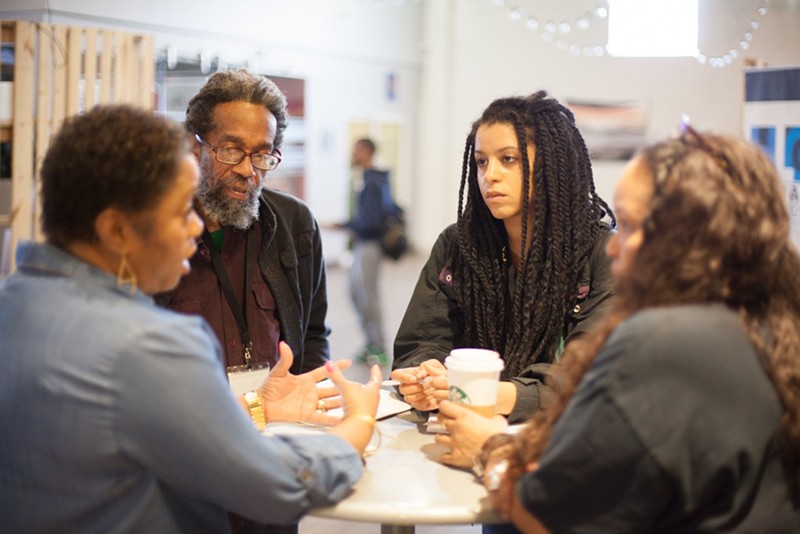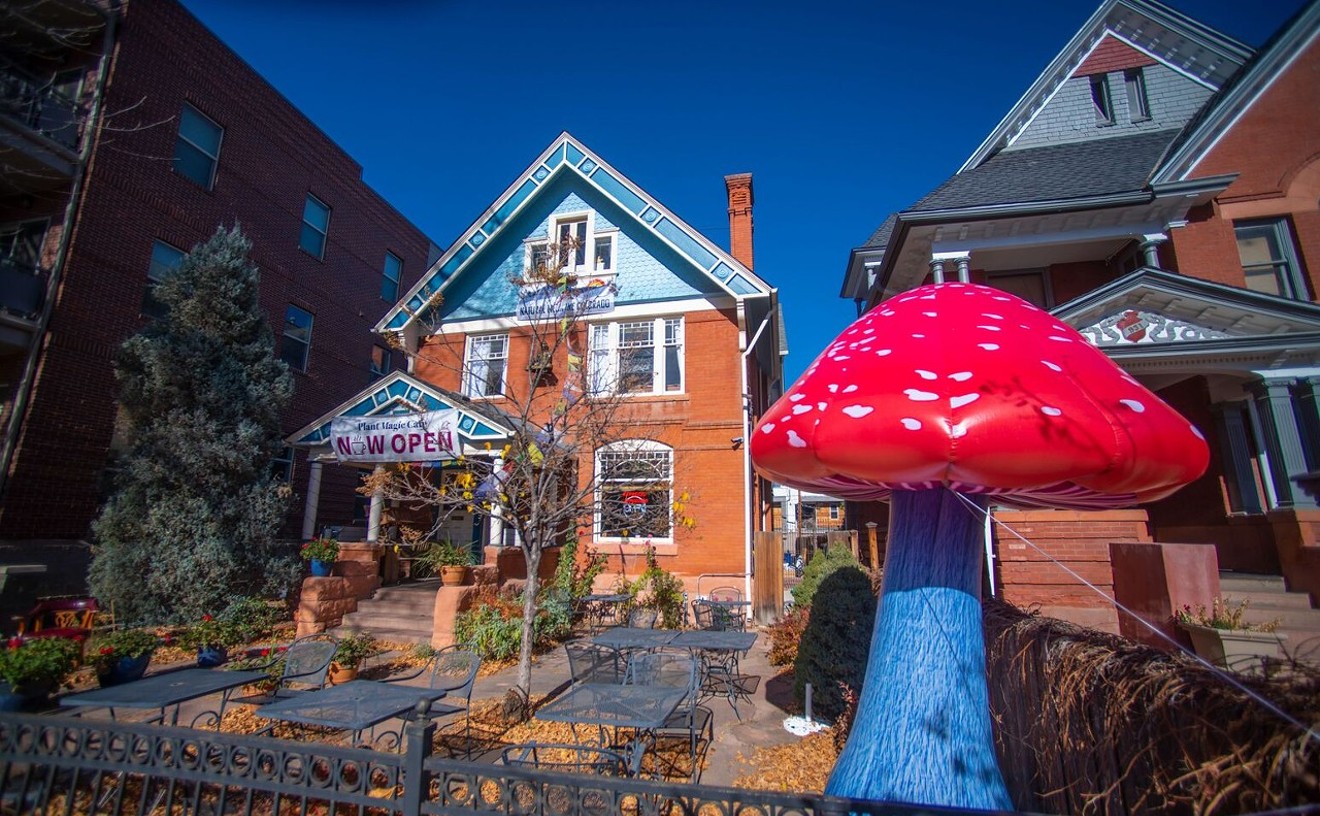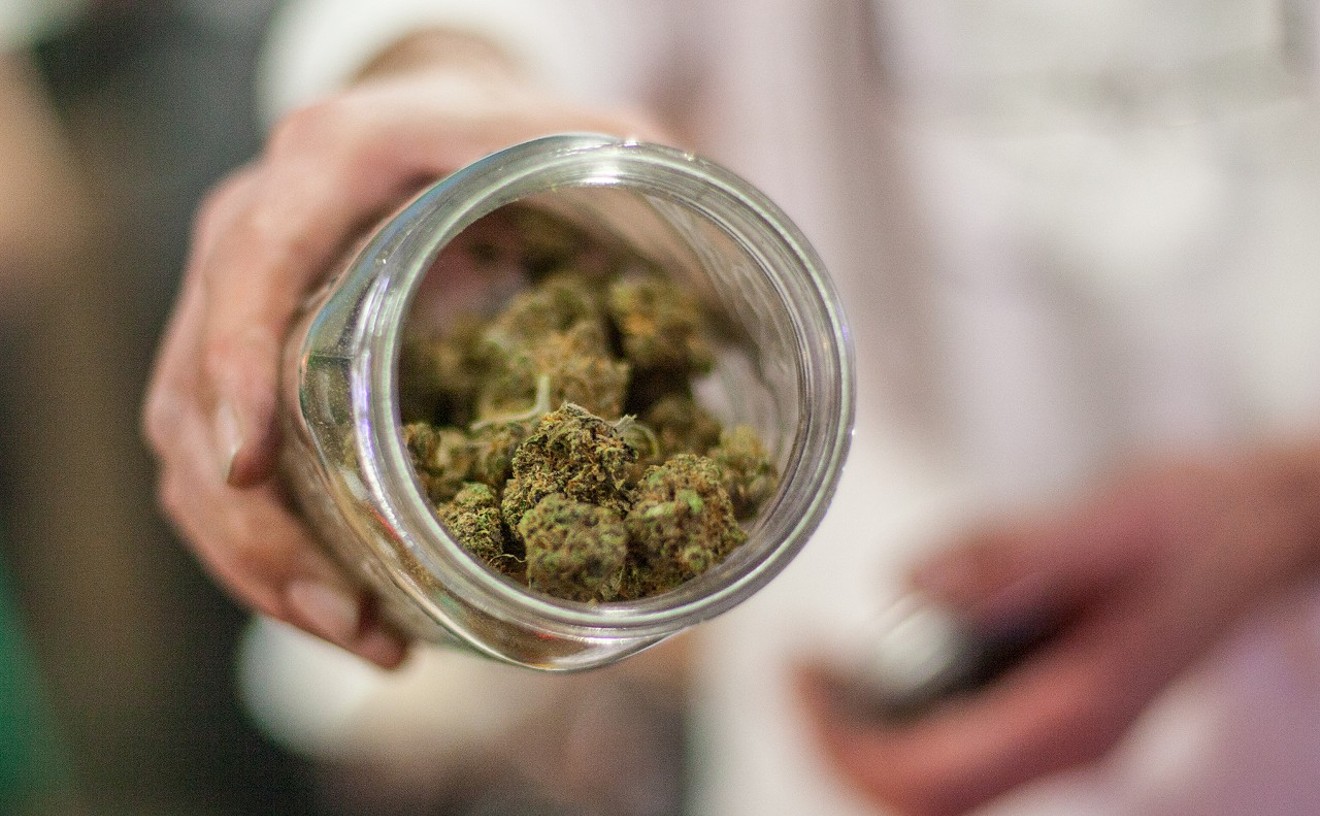Colorado will soon have $4 million in loans, grants and technical assistance available for marijuana business applicants who qualify for a social equity program intended to aid communities impacted by the War on Drugs.
The new Cannabis Advancement Program, overseen by the state Office of Economic Development and International Trade, was officially established when Governor Jared Polis signed Senate Bill 21-111 on March 21 at Simply Pure, a Denver dispensary owned by Black marijuana business owner and advocate Wanda James.
"We know that the long shadow of drug laws in our failed war on marijuana falls disproportionately on people of color, effectively reducing access to an industry that's fully legal and regulated in our state," Polis said before signing. "We cannot leave equity to chance in any industry, particularly a new industry as it gets off the ground."
The funding for the program is now set at $4 million until lawmakers review the budget during the 2022-23 fiscal year, but that number has fluctuated. Polis's initial proposal last year called for only $150,000 to hire a new OEDIT employee tasked with evaluating the need for marijuana social equity in Colorado. When that amount was criticized by industry stakeholders, the figure bounded up to $5 million before the Legislative Joint Budget Committee eventually settled on $4 million for the final bill.
The CAP program will be funded by state marijuana tax revenue, with specific amounts allocated for loans, grants and technical assistance to be determined by OEDIT rulemaking. The most recent proposal from the governor's office and OEDIT suggested that around $3 million should be set aside for low-interest loans ranging from $50,000 to $100,000. A little under $1 million would go to grants to social equity businesses and support organizations, with several hundred thousand dollars proposed for supporting new business owners by providing help with business plans, operational consultations and other services.
Those eligible for the assistance must prove one of the following: They or their families were negatively impacted by the War on Drugs, they earn less than 50 percent of the state median income, or they come from a community designated as a low-economic opportunity zone by OEDIT.
"It's not enough to start," says Black Cannabis Equity Initiative director John Bailey, "but what it's allocated for is an honorable gesture in the right direction."
The new law authorizes OEDIT to directly administer the program and distribute funding to applicants or "through one or more partner entities." But the language also requires OEDIT to establish those policies "with other relevant state agencies, industry experts, and other stakeholders," as well as the Colorado Economic Development Commission.
Senator Julie Gonzales and Representative Leslie Herod, two sponsors of the bill, also attended the signing. Gonzalez, whose district includes north, west and downtown Denver, highlighted data from a 2020 survey of the city's marijuana industry in which 12.7 percent of business owners and 12.1 percent of employees identified as Latino or Hispanic — although that category represents nearly 30 percent of the population, according to the U.S. Census Bureau. And while nearly 10 percent of Denver's population is Black, just 5.6 percent of owners identified as Black in the same survey.
"That data matters, because we actually did leave it to chance," Gonzales said. "We did leave equity to chance for far too long, and we saw those inequities reflected in this new industry. "
[
{
"name": "Air - MediumRectangle - Inline Content - Mobile Display Size",
"component": "12017618",
"insertPoint": "2",
"requiredCountToDisplay": "2",
"watchElement": ".fdn-content-body",
"astAdList": [
{
"adType": "rectangle",
"displayTargets": "mobile"
}
]
},{
"name": "Editor Picks",
"component": "17242653",
"insertPoint": "4",
"requiredCountToDisplay": "1",
"watchElement": ".fdn-content-body",
"astAdList": [
{
"adType": "rectangle",
"displayTargets": "desktop|tablet"
},{
"adType": "rectangle",
"displayTargets": "desktop|tablet|mobile"
}
]
},{
"name": "Inline Links",
"component": "18838239",
"insertPoint": "8th",
"startingPoint": 8,
"requiredCountToDisplay": "7",
"maxInsertions": 25
},{
"name": "Air - MediumRectangle - Combo - Inline Content",
"component": "17261320",
"insertPoint": "8th",
"startingPoint": 8,
"requiredCountToDisplay": "7",
"maxInsertions": 25,
"watchElement": ".fdn-content-body",
"astAdList": [
{
"adType": "rectangle",
"displayTargets": "desktop|tablet"
},{
"adType": "rectangle",
"displayTargets": "desktop|tablet|mobile"
}
]
},{
"name": "Inline Links",
"component": "18838239",
"insertPoint": "8th",
"startingPoint": 12,
"requiredCountToDisplay": "11",
"maxInsertions": 25
},{
"name": "Air - Leaderboard Tower - Combo - Inline Content",
"component": "17261321",
"insertPoint": "8th",
"startingPoint": 12,
"requiredCountToDisplay": "11",
"maxInsertions": 25,
"watchElement": ".fdn-content-body",
"astAdList": [
{
"adType": "leaderboardInlineContent",
"displayTargets": "desktop|tablet"
},{
"adType": "tower",
"displayTargets": "mobile"
}
]
}
]












